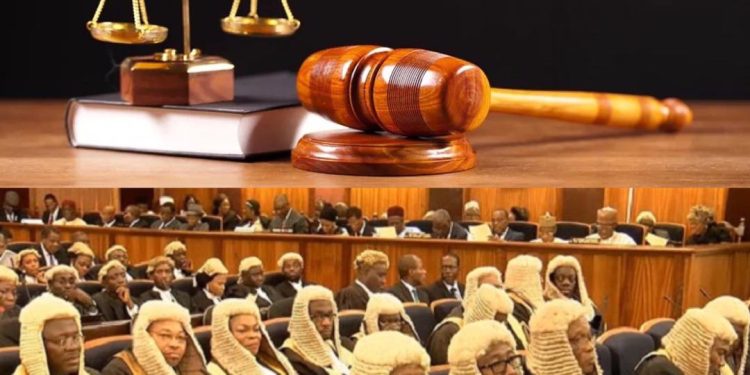The Nigeria judicial system was established immediately after the country gained independence in 1960.
The system was designed to uphold the rule of law, protect the rights of citizens, and administer justice fairly. However, over the years, the system has been plagued by a number of shortfalls that have undermined its effectiveness and eroded public trust.
Some of the major shortfalls of the Nigeria judicial system since independence are:
CORRUPTION
One of the major shortfalls of the Nigeria judicial system is corruption. Corruption has been a major problem in the country and the judicial system has not been spared. Many judges have been accused of taking bribes, manipulating the judicial process, and delivering judgments that are not based on the facts of the case.
This has undermined the integrity of the judiciary and eroded public trust in the system.
DELAYED JUSTICE
Another major shortcoming of the Nigeria judicial system is the issue of delayed justice. Cases in Nigeria can take years to resolve due to the slow pace of the judicial process. This has led to a backlog of cases and a lack of confidence in the system.
The delays have also led to a situation where the rich and powerful can afford to drag out cases for years, while the poor and marginalized are left without access to justice.
INADEQUATE FUNDING
The Nigeria judicial system is also plagued by inadequate funding. The system is underfunded and lacks the resources needed to function effectively.

This has resulted in a lack of modern equipment, inadequate staffing, and poor working conditions. The lack of funding has also led to a situation where justice is only available to those who can afford it, as the poor cannot afford legal representation.
LACK OF INDEPENDENCE
The Nigeria judicial system has also been criticized for its lack of independence. The judiciary is supposed to be an independent arm of government, but this has not always been the case in Nigeria. The executive branch of government has been accused of interfering with the judiciary, manipulating the appointment of judges, and influencing the outcome of cases.
The Nigeria judicial system has been plagued by a number of shortfalls since independence. Corruption, delayed justice, inadequate funding, and lack of independence have all undermined the effectiveness of the system and eroded public trust. To address these issues, there is a need for a comprehensive reform of the system, including the establishment of an independent judiciary, the provision of adequate funding, and the adoption of modern technology to speed up the judicial process.
















